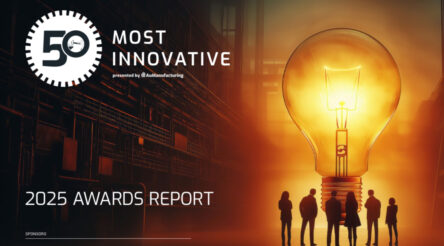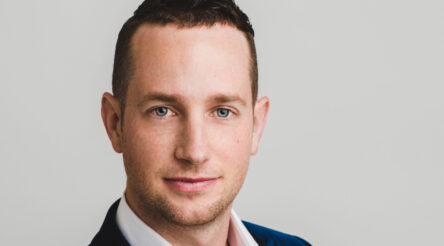Deriving data from dreamers
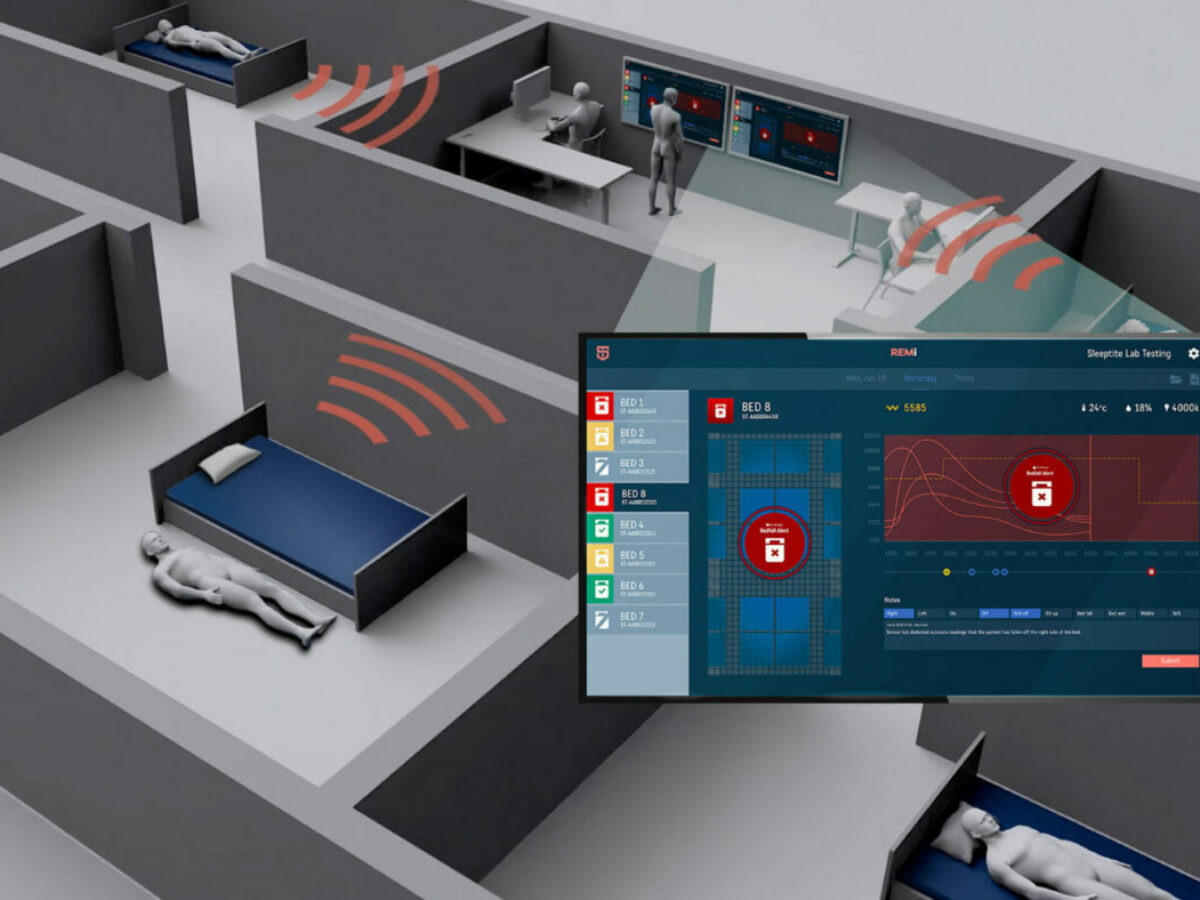
Less than two weeks before our Australia's 50 Most Innovative Manufacturers awards event at Cockle Bay Wharf, we profile another of the standout candidates. Brent Balinski speaks to Sleeptite founder Cameron van den Dungen about an eight-year quest to develop what's been described as “a bed that watches you sleep”.
Sleeptite did not set out to develop and manufacture a flexible, stretchable, printable electronic sensor able to non-invasively pick up vital signs and other information from slumberers.
But they are preparing for a commercial release this year of a world-first product based on exactly that.
“My first journey was looking to acquire technology. So I travelled all over the world, looking for the best system of biometric data extraction out of a bedroom-based environment,” the company’s founder and CEO Cameron van den Dungen tells @AuManufacturing.
“I couldn’t acquire it because it didn’t exist and the only way to solve my problem was to create the technology.”
What the founder did have was understanding of an unmet need, and a family history in both aged care and bedding. His grandmother Petronella owned and ran aged care homes, and father Henk was a founding member of the Forty Winks cooperative (Cameron is also currently a director there.)
Staffing at aged care facilities is often stretched, particularly overnight. Solutions like pressure mats and door checks aren’t a perfect way to pick up on falls and other problems.
“We started developing this product knowing what the sector needed,” explains van den Dungen.
“The sector needed tools for their carers, tools for their nurses to ensure that through the course of a night they could keep an eye on all people in bed. Because even in hospitals everyone drops their staffing numbers.”
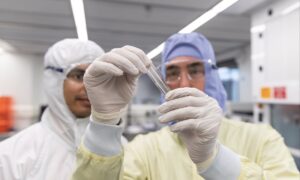
Sharath Sriram and Cameron van den Dungen. (Credit Mark Dadswell/Sleeptite)
Van den Dungen was introduced to RMIT University Professor Madhu Bhaskaran – now Co-Leader, Functional Materials and Microsystems – in 2016 via Rob Fildes from the Australian Academy of Science.
Could a breakthrough by her team — also including Professors Sharath Sriram and Sumeet Walia — in flexible electronics on silicone be the answer? Sleeptite has spent the intervening years finding out.
The work has moved up the Technology Readiness Levels from TRL 2 to TRL 6 through a CRC-P project running 2018 – 2021. It was soon followed by an Advanced Manufacturing Growth Centre-backed project – involving RMIT, mattress manufacturer Sleepeezee and foam business Joyce – which has taken them to where they are now, with a commercially-ready offering.
(Sleepeezee will be the contract manufacturer for the product.)
Van den Dungen speaks emphatically on the biggest challenge in reaching this stage after eight or so years.
“Number one! Cost ramifications! So I could make the best system in the world and it could cost $5,000 a unit at cost to build, and no-one will implement it. Because the sector couldn’t afford it,” he says.
“So knowing what they needed, the other thing is what would the market bear from a cost perspective… I made sure from my very first scoping meeting with my fundamental researchers and my translational researchers that there were finished product manufacturers at the table in the scoping meetings.
“So when a printing process was put on the table by the researchers, I can tell you the finished product team and their engineers turned around and said, ‘We would never do that in the manufacturing environment. We will use this other printing technique.’ And that then meant from the outset our researchers had to change, at a fundamental level, how they even printed the sensors in the first instance.”
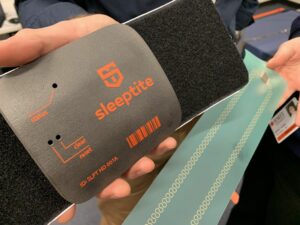
Picture: credit AMGC
The focus for the REMi monitoring system for the time being is the aged care sector, and on providing information related to a sleeper’s presence, posture and position. With the ability for the “nearable” sensors in mattress protectors to pick up vital signs, van den Dungen sees a wealth of other applications, given enough development time and resources, in defence, logistics, elite sports, sleep disorder diagnosis and elsewhere.
As for what constitutes innovation, the founder says that it isn’t explicitly about “deep tech”, citing simpler products that the company makes to adjust beds.
“Doing something that others either can’t see, haven’t seen or don’t understand,” he says of his definition.
“For me it’s just looking at something and making it tweaked to make it better. And it doesn’t matter how small that is. That to me is innovation: when you see something that others don’t and you start to do something about it.”
In this episode of @AuManufacturing Conversations, van den Dungen shares a lot of details about reaching this stage, apparently on the cusp of impacting an industry, after years of hard work. He also hints at a likely first client, which has been quietly trialling REMi for two years, talks about international interest, and explains how wanting “purity of outcome” has meant not taking outside investment.
Episode guide
1:02 – An accidental manufacturer. Making printable, flexible stretchable electronics to sense and determine what’s happening in a bedroom environment.
1:54 – The influence of family in what Sleeptite does. Father is a foundation member of Forty Winks. Grandmother and grandfather ran private aged care homes.
4:22 – The problem – needing non-invasive sensors for extracting data in a bedroom environment. “Every system I found of data extraction was either under-bed or unreliable.”
5:55 – A meeting with then-Associate Professor at RMIT, Madhu Bhaskaran, brokered by Rob Fildes.
6:40 – Applied for CRC-P. ‘REMI’ taken from TRL 2 to reach a working prototype in 2021. Received Advanced Manufacturing Growth Centre support to a commercial-ready product, which is where they are now.
8:01 – Underestimating the time it would take. Laughs at an early interview with Tony Peacock for the CRC Association podcast and a certain “naivete” starting out.
11:08 – What REMi does and how this was led by the needs of the aged care sector.
12:50 – There was no technology to address under-staffed aged care workplaces.
13:10 – A nearable, not a wearable. Provides information on presence, posture and position. Why these are the parameters they’re focussing on.
14:30 – Other data could be tracked – such as respiration – but isn’t a focus for the time being.
16:10 – The biggest challenges to doing what they're doing.
17:50 – Working out how to make it before going much further with translational research.
19:10 – If you don’t know how to make your own product and then go global, you will lose control of your IP.
20:50 – Applications beyond aged care, such as sleep disorders, sports apparel and defence.
24:20 – Why a planned sleep disorder diagnosis and monitoring trial was put on pause.
26:55 – Upcoming work with Flinders University, University of Birmingham, and Monash University’s Turner Institute.
28:40 – Why they're bootstrapped.
29:58 – Investor support in Australia. “…Due to our size of industry it’s very formulaic and there’s probably a lack of understanding or sophistication of many investors of what deep tech is. That patience and that long term of pre-revenue, pre-commercial support is very difficult in Australia. It’s not impossible.”
30:50 – The importance of non-equity-diluting funding from federal and state governments. Van den Dungen also credits minister Ed Husic’s interest in the company's progress.
34:12 – The current stage of commercial readiness. A recent demonstration of Remi Care at the ACCPA. Nearly two years of trials in facilities owned by one of the biggest aged care providers in Australia (over 10,000 beds under their control.)
35:58 – The challenges to providers in adopting new technology and how governments can help.
37:15 – Preparing for the first production run.
38:22 – What success would look like, and what the best kind of award is.
38:55 – Praise for the team.
39:38 – Personal definition of innovation.
40:50 – “I think there is a lack of understanding around what manufacturing should be in Australia, fundamentally, at all levels.”
42:20 – Taking inspiration from HSV and the Walkinshaw family.
Main picture: REMi (credit Sleeptite/AMGC)
Australia’s 50 Most Innovative Manufacturers is an annual campaign by @AuManufacturing. It has been made possible through the generous support of MYOB, CSIRO, the NSW government’s Advanced Manufacturing Research Facility, and the Commonwealth Bank. Be sure to check back at this website for regular updates, including profiles of nominees and other information.

@aumanufacturing Sections
Analysis and Commentary Awards casino reviews Defence Gambling Manufacturing News Online Casino Podcast Technology Videos


